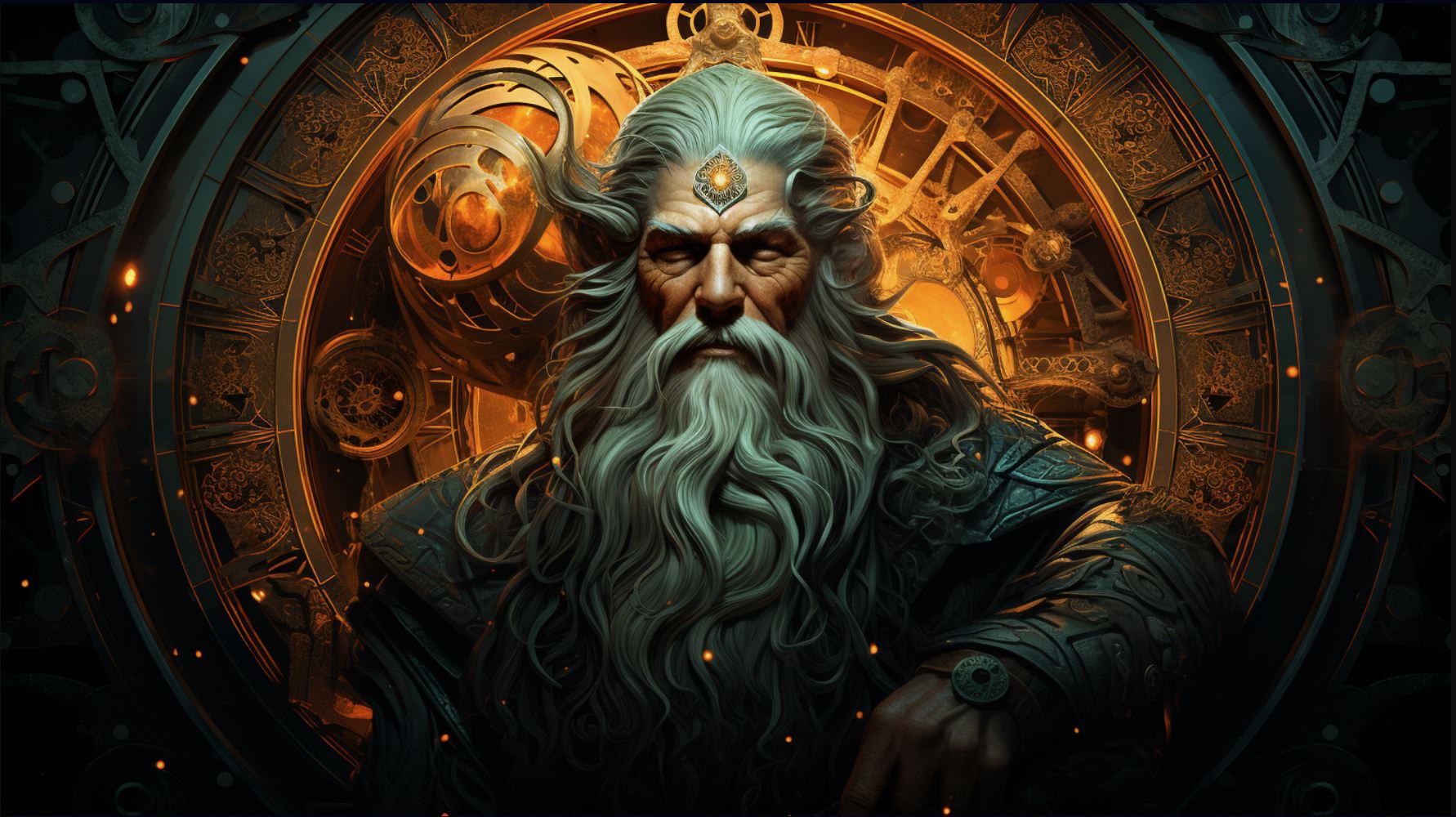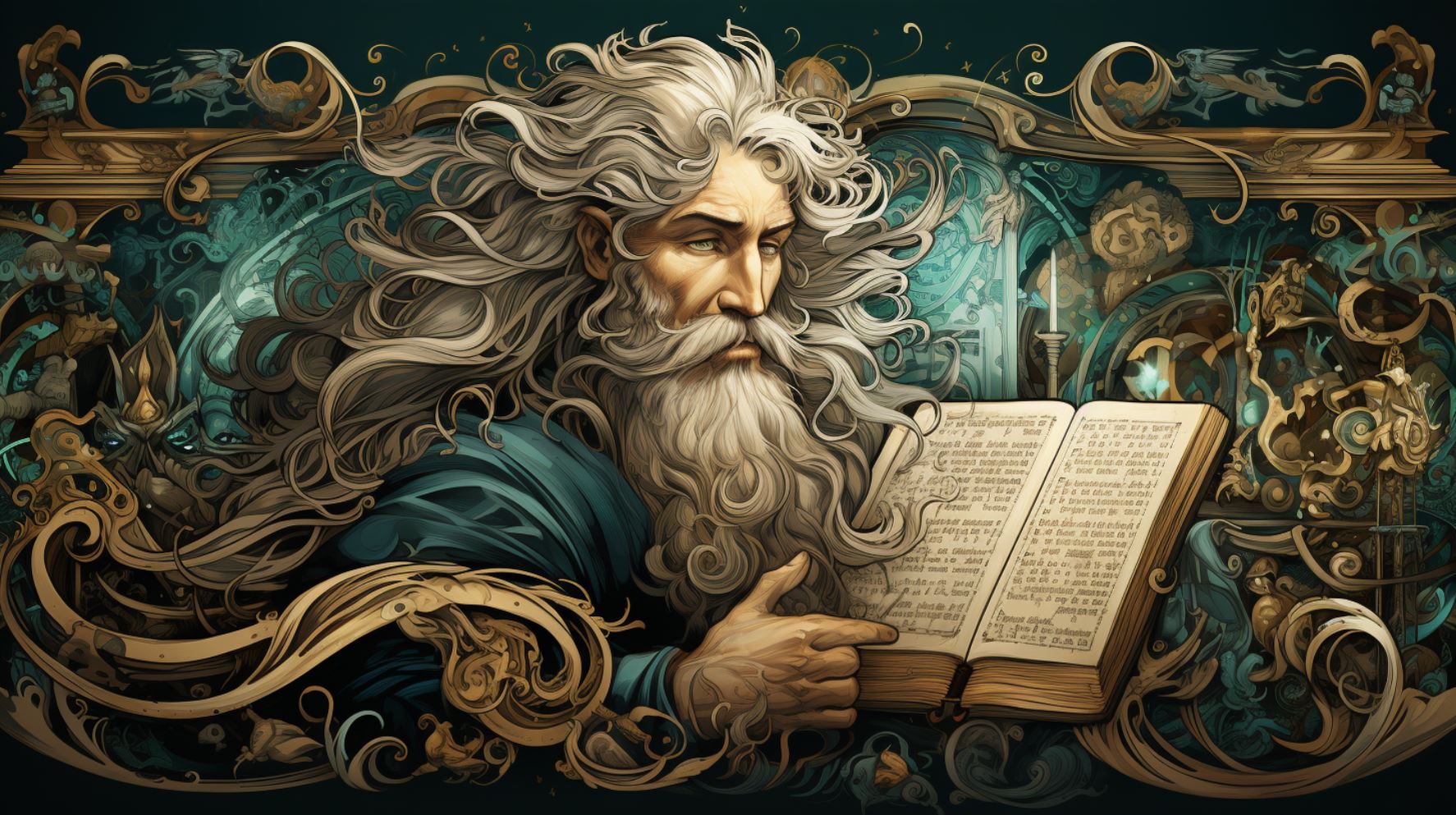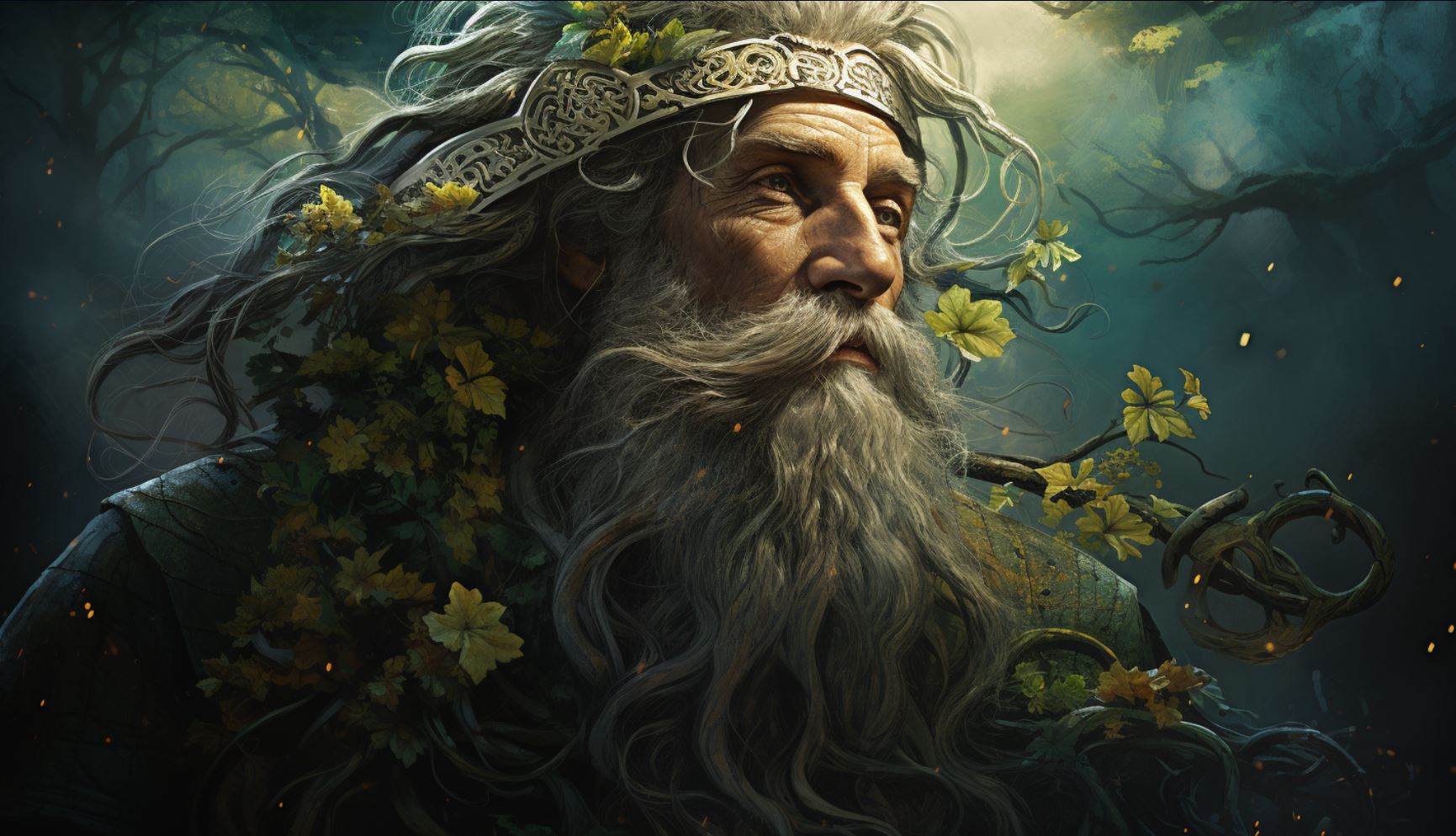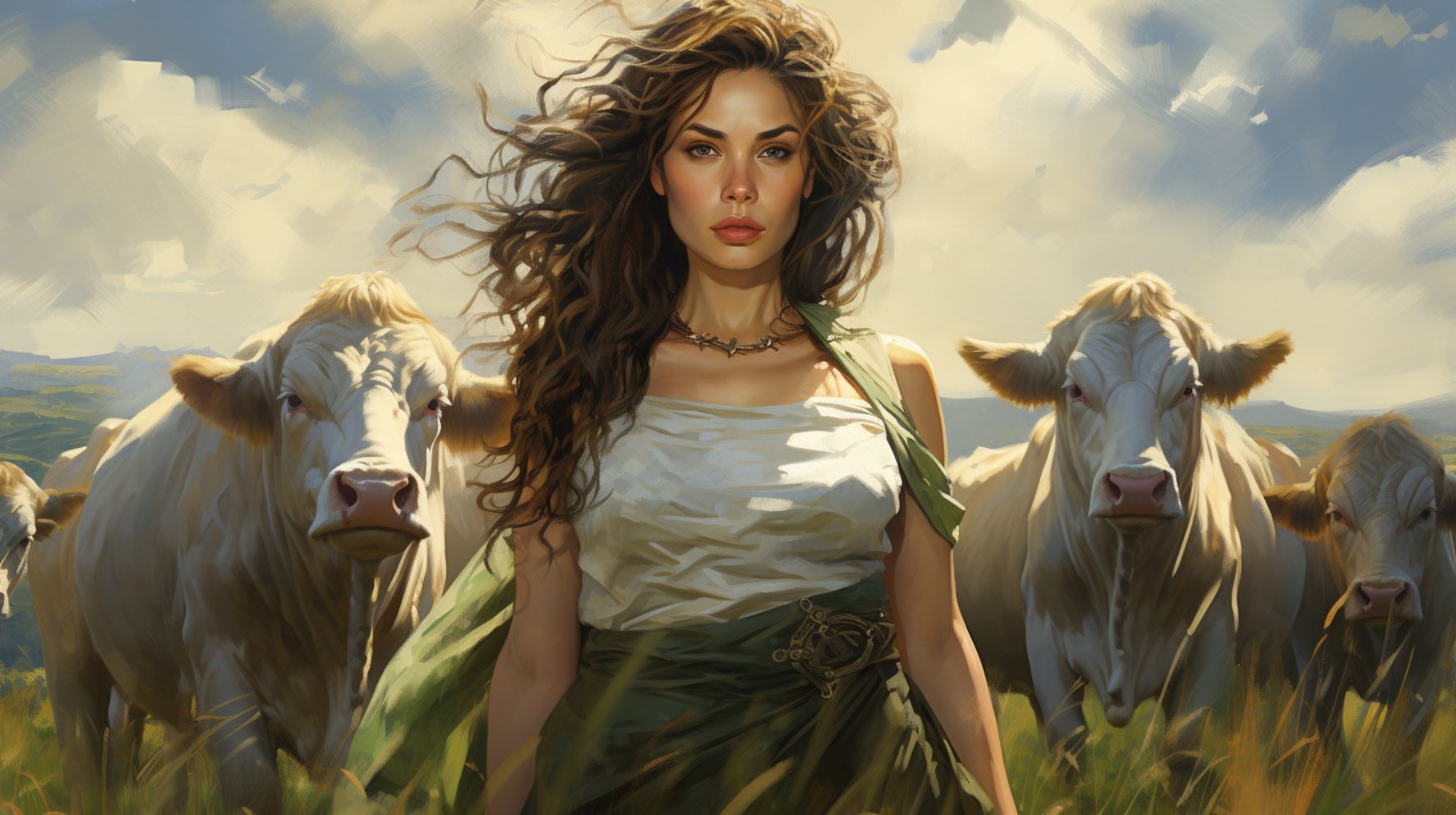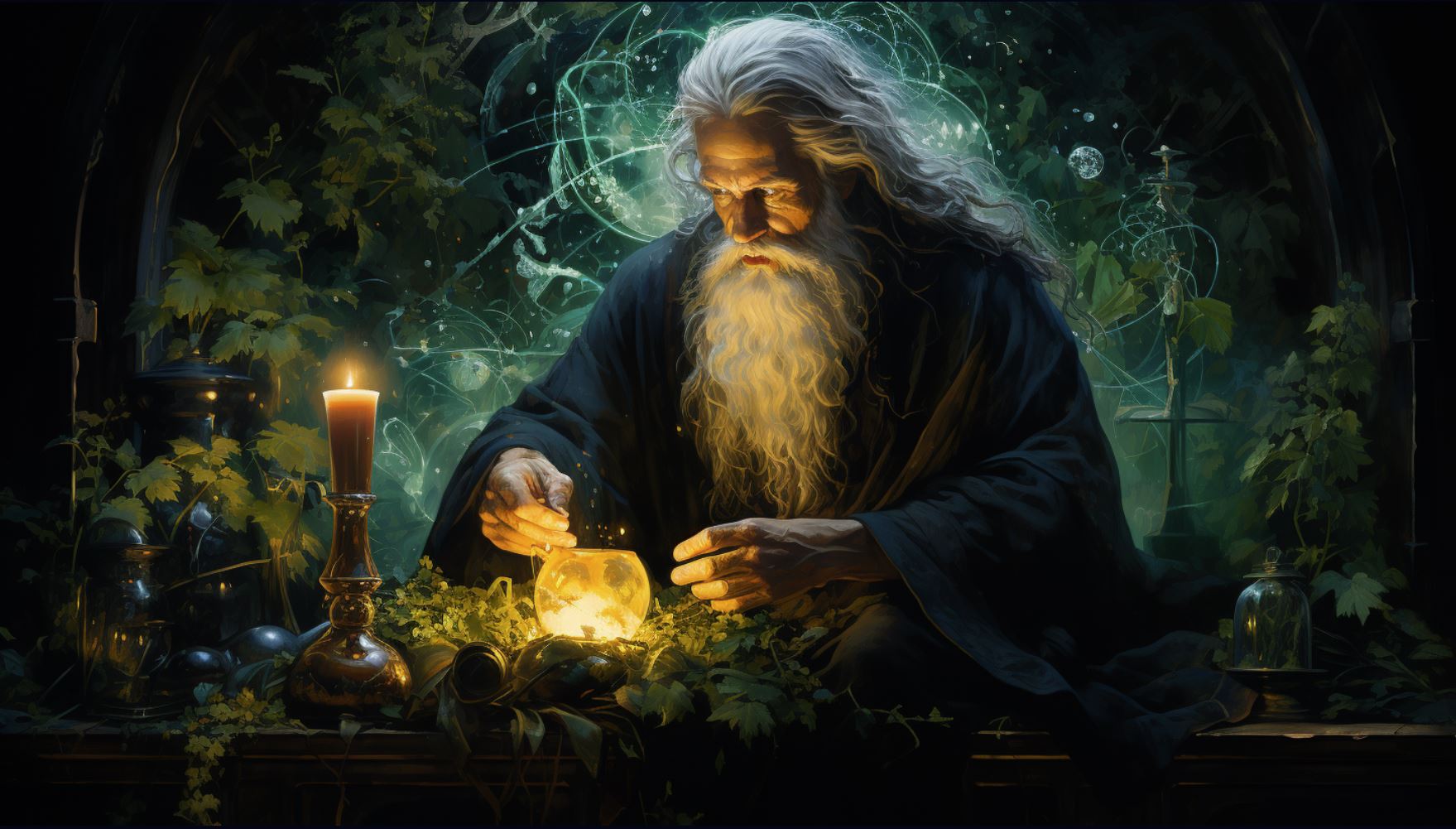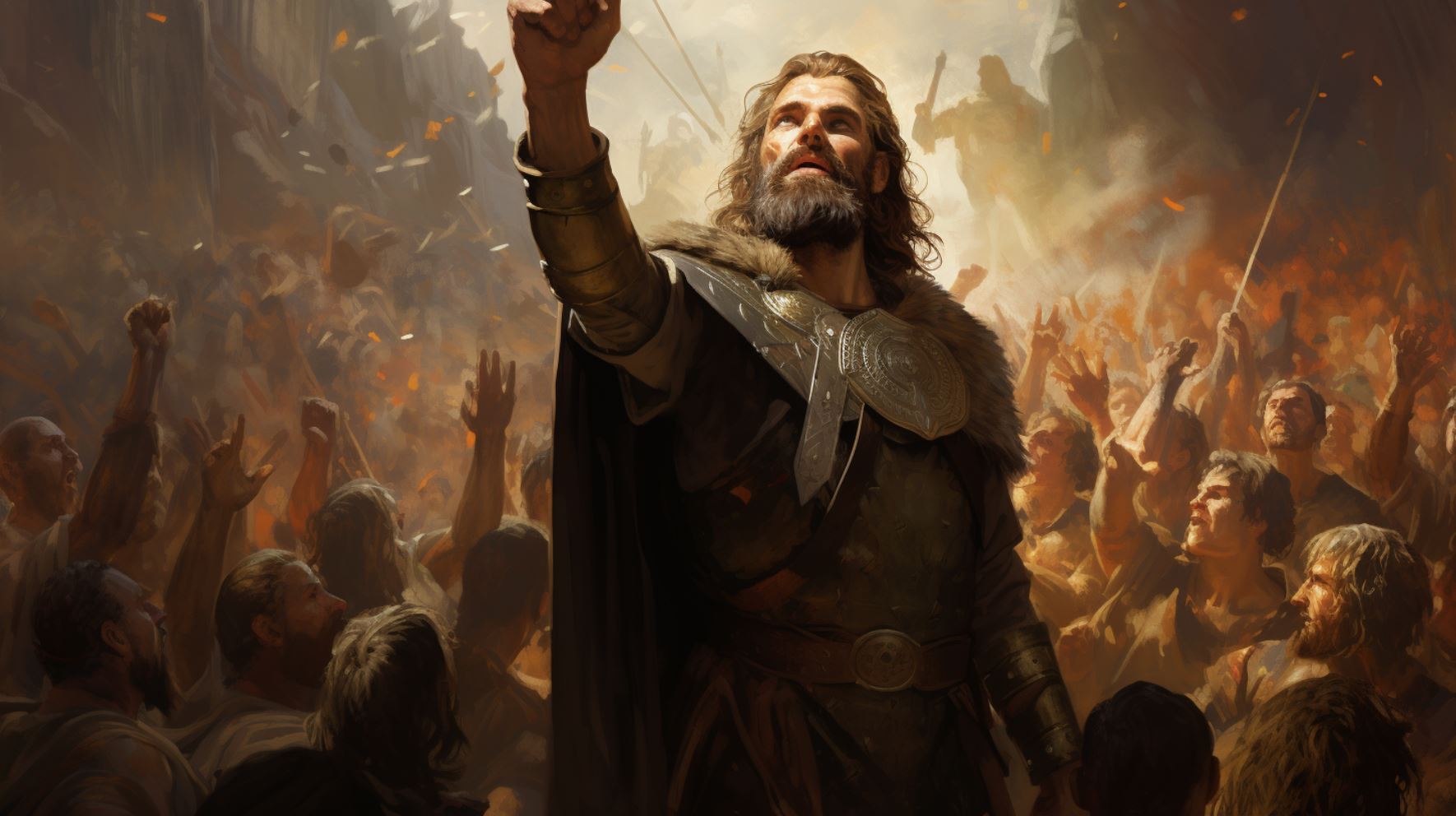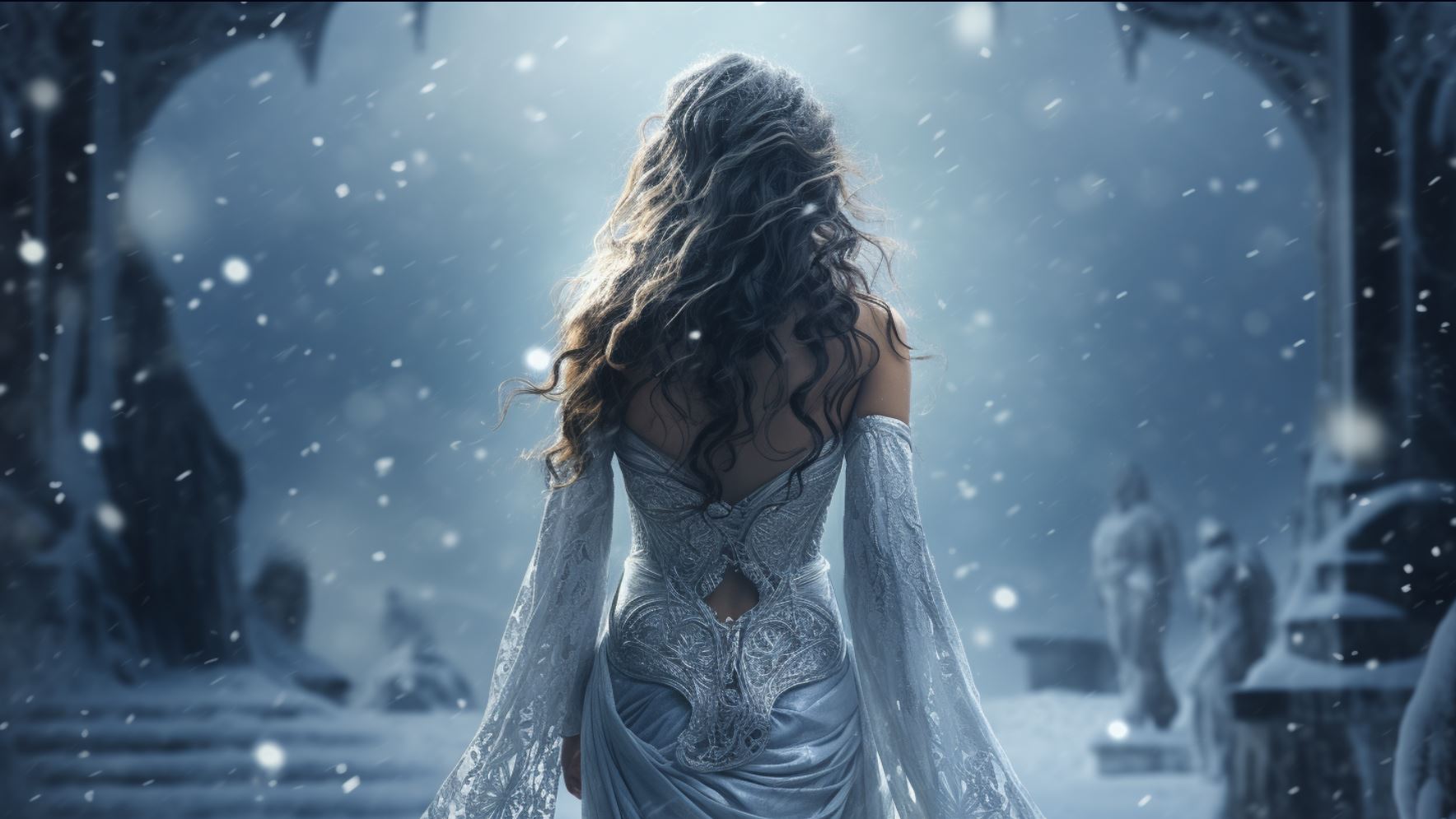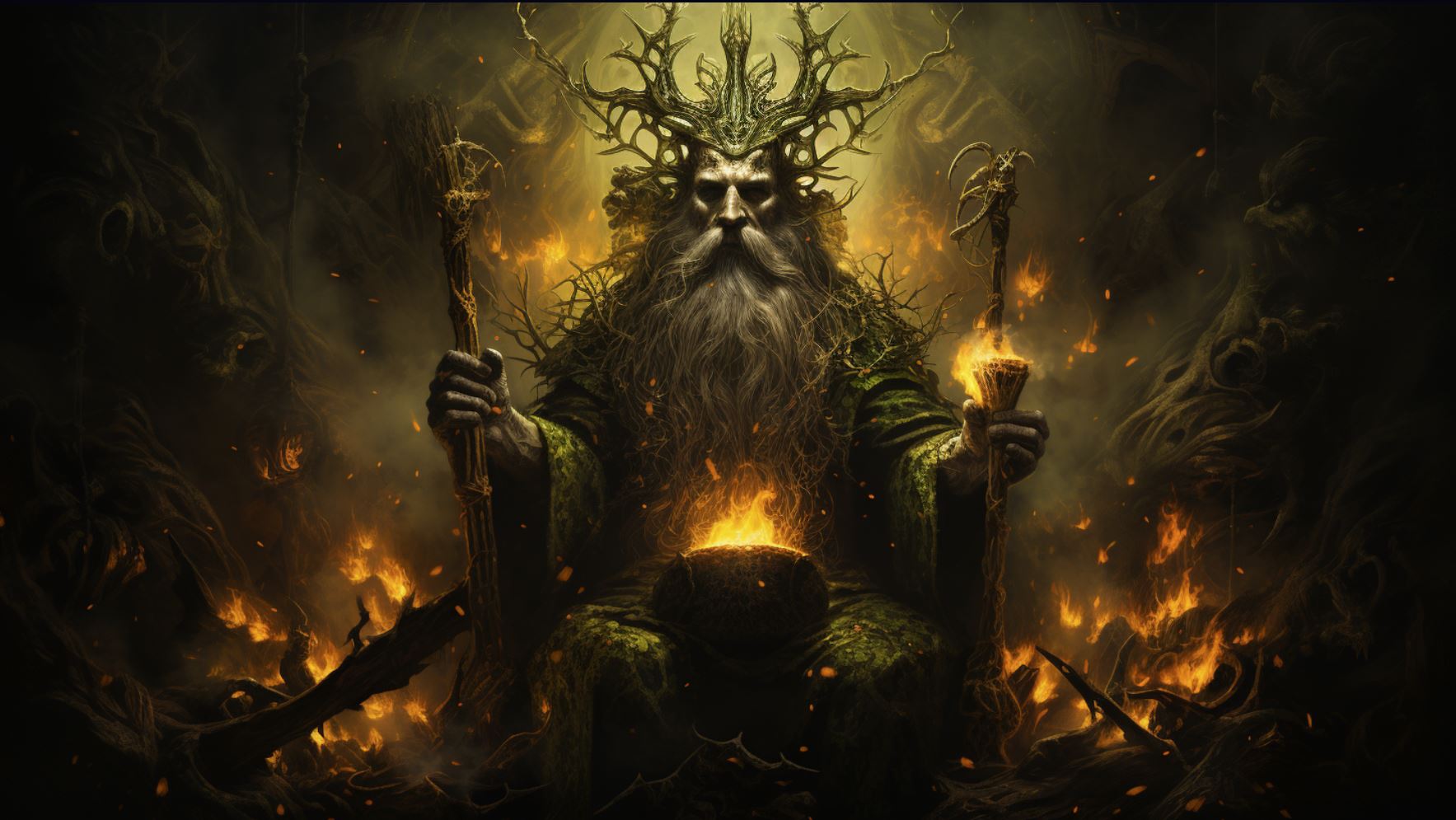Cian God: Exploring the Mythical Powerhouse of Celtic Deity in Irish Folklore
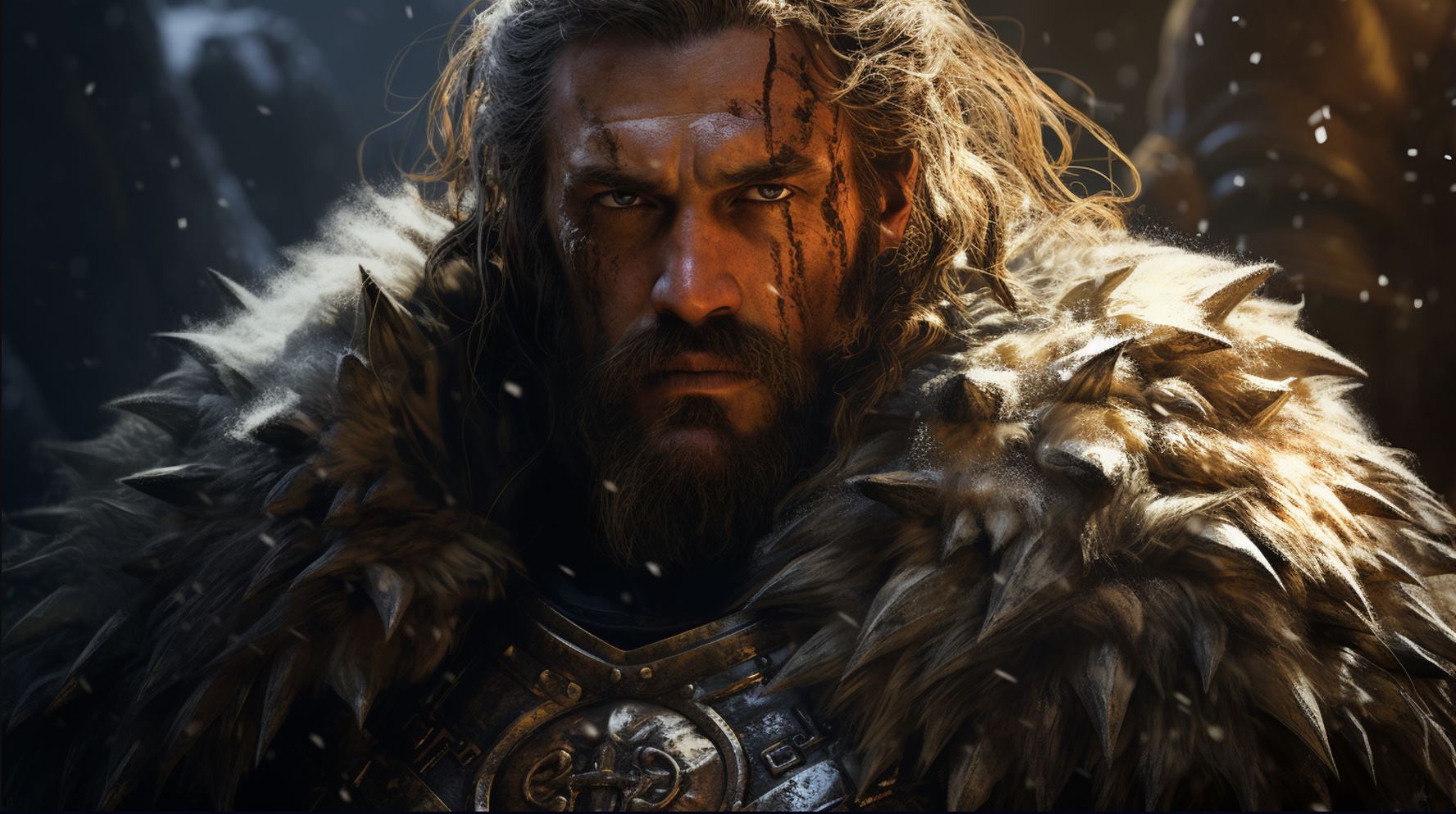
Cian God, a prominent figure in Celtic mythology, holds a significant role in the tales of Irish folklore. Known as a powerful warrior deity and the father of Lugh, Cian’s story intertwines with themes of illicit relationships, tragic demise, and revenge.
This article explores Cian’s connection with Lugh, his eventful journey, and the tasks imposed upon the sons of Tuireann. Additionally, we delve into Cian’s various identities, his dynastic marriage, and his relationship with other notable figures within the Tuatha Dé Danann.
Lastly, we touch upon the intriguing legend surrounding Cian’s mysterious wife and the magical cow known as Glas Gaibhnenn.
Cian God and Lugh: A Father-Son Connection
In Celtic mythology, Cian God plays a crucial role as the father of the legendary figure, Lugh. Their relationship is shrouded in secrecy and intrigue, adding depth to their connection.
Let’s explore the fascinating dynamics between Cian and Lugh, delving into the illicit nature of their bond and the profound influence Cian has had on Lugh’s mythological journey.
Cian’s Relationship with Lugh: An Illicit Connection
Cian’s relationship with Lugh is characterized by forbidden passion and hidden love. According to mythological accounts, Cian had an affair with Balor’s daughter, Ethlinn, resulting in the birth of Lugh. Their illicit connection adds a sense of intrigue and complexity to their father-son relationship.
Despite the circumstances of their union, Cian’s affection for Lugh is evident in the stories and legends that have been passed down through generations.
Cian’s Influence on Lugh’s Mythological Journey
Beyond their familial ties, Cian’s influence has shaped Lugh’s mythological journey in profound ways. As a powerful warrior deity, Cian instilled in Lugh the virtues of courage, strength, and battle prowess.
These qualities have manifested in Lugh’s own adventures, where he becomes a prominent figure in Irish mythology. Cian’s legacy as a formidable warrior has undoubtedly left an indelible mark on Lugh, guiding him on his heroic path and shaping him into the figure we know today.
The connection between Cian and Lugh transcends mere familial bonds, weaving together a tale of forbidden love, hidden identities, and the enduring legacy of a father’s influence on his son.
As we unravel the story of Cian God and his relationship with Lugh, we gain a deeper understanding of the rich tapestry that is Celtic mythology.
The Story of Cian’s Death and Lugh’s Revenge
Cian’s tragic demise and Lugh’s subsequent revenge are captivating tales within Celtic mythology.
They reveal the sorrowful events that unfolded and the resulting consequences.
The Fate of the Children of Tuireann: Cian’s Tragic Demise
Cian’s life took a tragic turn when he was hunted down by the sons of Tuireann. Desperate to escape their grasp, he resorted to transforming himself into a pig. However, his plans were foiled, and he met his untimely end at the hands of his pursuers.
This heartbreaking loss left a deep wound in the mythological narrative.
Lugh’s Imposed Tasks for the Sons of Tuireann
In order to avenge his father’s death, Lugh imposed a series of seemingly impossible tasks upon the sons of Tuireann. These challenges were designed to test their strength, determination, and resourcefulness.
Lugh’s intention was not only to seek justice for Cian but also to show the consequences of their actions.
Some of the tasks included:
- Obtaining the magical weapons that belonged to notable mythological figures.
- Acquiring a sacred cauldron capable of restoring life.
- Securing a healing pigskin with the power to mend any wound.
The Tragic End: Death and Grief in the Tale
Despite the sons of Tuireann completing the arduous tasks assigned by Lugh, their fate was sealed.
Mortally wounded in their final task, they desperately sought the healing power of the magical pigskin. However, Lugh, consumed by his desire for vengeance, denied them the opportunity to use it.
As a result, the sons of Tuireann succumbed to their injuries, and their father, Tuireann, was left devastated by their loss.
These poignant events demonstrate the enduring themes of tragedy and the heavy toll taken by acts of revenge in Celtic mythology.
Cian’s Identity and Other Names
In Celtic mythology, Cian, also known as Cian God, has multiple names and identities that add depth to his character. Let’s delve into these different aspects:
Exploring the Name Cian: ‘The One Who Endures’
The name Cian holds significant meaning in Irish mythology.
It signifies strength, resilience, and the ability to endure challenges. As a warrior deity, Cian exemplifies these qualities throughout his mythological journey.
Scal Balb: Cian’s Alternative Name and Its Meaning
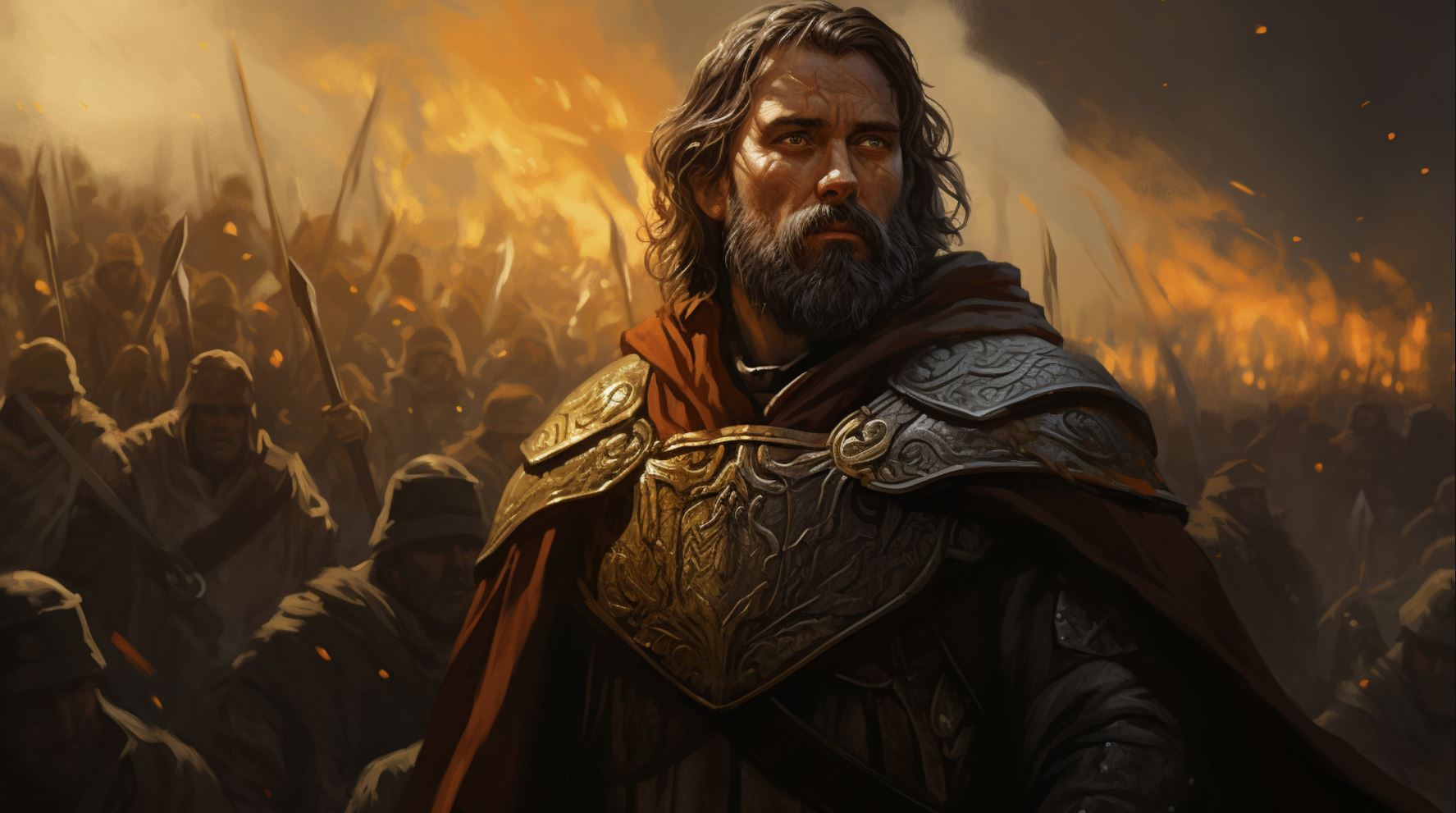
Another name associated with Cian is Scal Balb, which translates to ‘mute champion.’ This title portrays Cian’s formidable presence on the battlefield, emphasizing his prowess as a fearless warrior.
Cian’s Lineage: The Connection with Ethniu and Ethlend
Cian’s family lineage is intricately tied to important figures in Irish mythology.
His mother is the Fomorian princess Ethniu, adding royal blood to his heritage. Additionally, Cian is also known by the name Ethlend (Ethlenn), which alters the reference of ‘Lug mac Ethlend’ to a patronymic identity, emphasizing the paternal connection between Cian and Lugh.
These different names and connections shed light on Cian’s origins, characteristics, and familial ties, elevating his significance within the mythology of the Tuatha Dé Danann.
Cian’s Role Within the Tuatha Dé Danann
Cian, a significant figure in Celtic mythology, played a crucial role within the Tuatha Dé Danann, the legendary ethnic group of pre-Christian Ireland. In this section, we will explore two key aspects of Cian’s role: his dynastic marriage to Ethniu, which formed an alliance with the Fomorians, and his relationship with his sons Cu, Cethen, and Miach.
Cian’s Dynastic Marriage to Ethniu: Alliance with Fomorians
Cian’s union with Ethniu, a Fomorian princess, marked a significant alliance between the Tuatha Dé Danann and the Fomorian race.
This dynastic marriage served as a symbolic bond between the two groups, aimed at fostering peace and cooperation.
The marriage between Cian and Ethniu not only brought together two powerful lineages but also strengthened the Tuatha Dé Danann’s position by forming a connection with their former adversaries.
The marital alliance acted as a foundation for future diplomatic relations between the two factions, setting the stage for Cian’s pivotal role within the Tuatha Dé Danann’s complex political landscape.
Cian’s Sons and Family: The Relationship with Cu, Cethen, and Miach
Cian’s family played a significant role in the mythology of the Tuatha Dé Danann.
He had three sons: Cu, Cethen, and Miach, who were born from his union with the goddess Ethniu.
Cu, Cian’s firstborn son, went on to become a skilled warrior revered for his bravery and strength.
Cethen, Cian’s second son, was known for his wisdom and healing abilities, often associated with his grandfather, Dian Cecht, the physician of the Tuatha Dé Danann. Lastly, Miach inherited his father’s medical knowledge and became a renowned healer in his own right.
Collectively, Cian’s sons made notable contributions to the Tuatha Dé Danann, embodying their family’s legacy of strength, wisdom, and healing. Their individual roles and achievements added depth to Cian’s influential lineage within the mythical world.
In conclusion, Cian’s role within the Tuatha Dé Danann encompassed his dynastic marriage to Ethniu, which formed an alliance with the Fomorians, and his relationship with his sons, Cu, Cethen, and Miach. This intricate web of connections solidified Cian’s importance within the larger narrative of Irish mythology and highlighted his family’s significant contributions to the Tuatha Dé Danann.
The Legend of Cian’s Wife: Folktales and the Magical Cow Glas Gaibhnenn
Deep within the rich tapestry of Celtic folklore lies the enigmatic tale of Cian’s wife, shrouded in mystery and passed down through generations in oral tradition. The search for this elusive figure continues to captivate the imagination with its twists and turns, leading us on a journey of wonder and intrigue.
Folklore Tales: Searching for Cian’s Mysterious Wife
Legend has it that Cian, the valiant warrior deity, embarked on a quest to find his beloved wife, who had vanished under mysterious circumstances. Tales and ballads resonate with the echoes of his determination as he traversed ancient lands, seeking clues to her whereabouts.
These folktales speak of Cian’s encounters with wise old seers, enchanted forests, and mystical beings, all of whom offered shards of guidance along the way. Each clue became a delicate thread woven into the tapestry of the unfolding story, promising a reunion that seemed just out of reach.
As Cian’s journey unfolded, the folklore tales described his relentless pursuit, blending elements of adventure, magic, and deep human emotions. The trials faced, both physical and emotional, painted a vivid picture of love’s unwavering strength and the lengths one would go to reunite with their soulmate.
Unveiling the Legend of Glas Gaibhnenn: The Magical Cow
At the heart of the legend surrounding Cian’s wife lies the mythical cow, Glas Gaibhnenn. This extraordinary creature possesses otherworldly qualities, believed to hold the key to revealing Cian’s wife and resolving the mystery that has gripped the hearts and minds of storytellers throughout the ages.
Glas Gaibhnenn, with its luminous coat and mystical aura, is said to possess the power to traverse realms, bridging the gap between the mortal and divine. Its milk, said to be imbued with extraordinary properties, has the ability to unlock hidden truths and restore what has been lost.
Legends tell of Cian’s relentless pursuit of Glas Gaibhnenn, guided by ancient prophecies and celestial signposts. The cow’s magical presence becomes intertwined with Cian’s quest, promising the revelation of his wife’s fate and the resolution of their love story.
As the myth unravels, the legend of Glas Gaibhnenn takes on a life of its own, encouraging readers and listeners alike to dream of a world where love conquers all and where the mystical forces that bind us are unveiled in the most extraordinary ways.
- The quest for Cian’s wife in Celtic folklore
- Cian’s encounters with seers and enchanted forests
- The trials and emotional journey in search of love
- The legend of the magical cow, Glas Gaibhnenn
- Glas Gaibhnenn’s otherworldly qualities and significance
- Cian’s relentless pursuit guided by ancient prophecies











